 On the third day there was a wedding in Cana of Galilee, and the mother of Jesus was there. Jesus and his disciples had also been invited to the wedding. – John 2:1-2
On the third day there was a wedding in Cana of Galilee, and the mother of Jesus was there. Jesus and his disciples had also been invited to the wedding. – John 2:1-2
I know that the natural inclination of preachers during the season of ordinary Sundays after Epiphany is to focus on the gospel stories of “manifestation” and we certainly have one this week, the miracle of water-into-wine at the wedding in Cana of Galilee. The story is ripe with focus possibilities: the miracle itself, the presence of the Holy Spirit as the activating force of Jesus’ power (suggested strongly this year by the lectionary pairing of this gospel tale with Paul’s listing of spiritual gifts in 1 Corinthians 12), the always popular look at the relationship between Mary and her son, Jesus’ attitude toward his public ministry at this time.
What is seldom preached on this Sunday is the context of the story: a wedding! So I think I might go there this week if I were preaching. The lesson from the Hebrew Scriptures positively invites us to do so; marriage is Isaiah’s metaphor (as it is other prophets’) for the relationship between God and Israel:
For as a young man marries a young woman,
so shall your builder marry you,
and as the bridegroom rejoices over the bride,
so shall your God rejoice over you.[1]
I’ve been thinking a good deal recently about the nature of the marital estate. I recently had major orthopedic surgery (a total knee replacement) and find myself absolutely unable to attend to many of the everyday activities of life, some of them quite mundane, some quite intimate and personal. I am dependent upon my spouse to whom I have been married now for nearly 40 years. As she attended to one of my needs the other day, I quipped, “Ah yes, I remember well that part of the service where we promised to do this for each other” (which, of course, we hadn’t). We make formal promises in weddings to love and honor, to cherish and comfort, to faithfully keep one another “in sickness and health,”[2] but we don’t get into the nitty-gritty details. Perhaps we’ve been counseled in advance of the wedding as to what these vows mean and what that nitty grit might be, but no pre-marital instruction can cover everything.
My father-in-law probably didn’t realize in 1947 that those promises would commit him 50 years later to caring for an invalid wife suffering from Alzheimer’s disease for the last eight years of their marriage, feeding her, bathing her, wiping her bottom, and all while she tried to fight him off because she didn’t know him. Those vows long before the onset of my mother-in-law’s disease had become water under the bridge, replaced by the fine, strong wine of human love and commitment. And though she hasn’t (I hope) had quite the same level of difficulty to handle, my in-law’s daughter follows in her father’s footsteps taking care of her temporarily invalided husband.
So . . . if I were preaching this week, I’d consider that context, a wedding. Weddings become marriages, brides become wives, grooms become husbands; those are transmutations, transformations, and differences as profound as water become wine. That alchemy of marriage manifests the Lord in our midst everyday.
====================
Notes:
Click on footnote numbers to link back to associated text.
[1] Isaiah 62:5
[2] The Celebration and Blessing of a Marriage, The Book of Common Prayer 1979, page 424
 What are we to do with our first lesson today? The story of the testing of Abraham and the binding of Isaac, called the Akedah in Hebrew, “exudes darkness and mystery, and it brings before us a thousand questions, most of which have no answers.”[1] In the late 1300s an unknown English author penned a short treatise entitled The Cloud of Unknowing basically arguing that such “darkness and mystery,” and the thousands of unanswerable questions they bring, are really fundamental to our relationship with God. “[O]f God Himself can no man think,” he writes, “He may well be loved, but not thought. By love may He be gotten and holden; but by thought never.”[2]
What are we to do with our first lesson today? The story of the testing of Abraham and the binding of Isaac, called the Akedah in Hebrew, “exudes darkness and mystery, and it brings before us a thousand questions, most of which have no answers.”[1] In the late 1300s an unknown English author penned a short treatise entitled The Cloud of Unknowing basically arguing that such “darkness and mystery,” and the thousands of unanswerable questions they bring, are really fundamental to our relationship with God. “[O]f God Himself can no man think,” he writes, “He may well be loved, but not thought. By love may He be gotten and holden; but by thought never.”[2]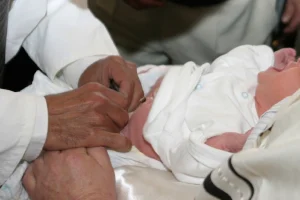
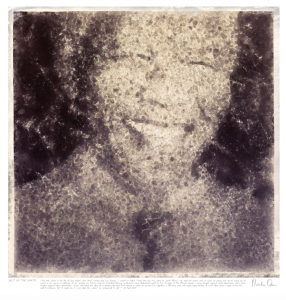 A Buddhist tells this story:
A Buddhist tells this story: This is a special Sunday for me. Friday marked the 28th anniversary of my ordination as a priest in the Episcopal Church. It was on Sunday, June 23, 1991, that I celebrated my first mass. So I am grateful to you and to Fr. George for the privilege of an altar at which to celebrate the Holy Mysteries and a pulpit from which to preach the gospel on this, my anniversary Sunday.
This is a special Sunday for me. Friday marked the 28th anniversary of my ordination as a priest in the Episcopal Church. It was on Sunday, June 23, 1991, that I celebrated my first mass. So I am grateful to you and to Fr. George for the privilege of an altar at which to celebrate the Holy Mysteries and a pulpit from which to preach the gospel on this, my anniversary Sunday. Lenten Journal, Day 8
Lenten Journal, Day 8 On the third day there was a wedding in Cana of Galilee, and the mother of Jesus was there. Jesus and his disciples had also been invited to the wedding. – John 2:1-2
On the third day there was a wedding in Cana of Galilee, and the mother of Jesus was there. Jesus and his disciples had also been invited to the wedding. – John 2:1-2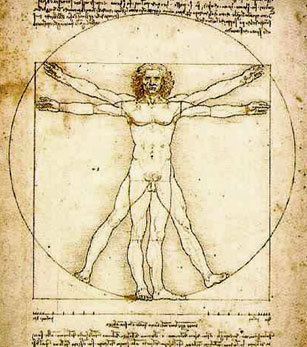 Our gradual this morning asks a question of God about human existence:
Our gradual this morning asks a question of God about human existence: Last week we began our parish’s annual fund campaign with the theme “Transforming Generosity.” You should have received your pledge card for 2019 together with a letter about the nature of stewardship and generosity. There was an article in the newsletter similar to that letter, and early in the week you received an email (if you receive email) which is repeated on an insert in your bulletin this morning. Your parish leadership team has asked and will continue to encourage you to do two things that may seem contradictory: first, to make your financial commitment for 2019 earlier than usual, and second, to take your time in doing so. Our hope is that you will submit your estimates of giving on or before the first Sunday in November, but that you will give real prayerful and careful consideration to how your financial support of your church reflects your relationship with God. Stewardship, as that letter said, is not a matter of fund raising; stewardship is a matter of spiritual health. The “Transforming Generosity” theme hopes to inspire you to be a faithful steward and so to give as an expression of your relationship with God.
Last week we began our parish’s annual fund campaign with the theme “Transforming Generosity.” You should have received your pledge card for 2019 together with a letter about the nature of stewardship and generosity. There was an article in the newsletter similar to that letter, and early in the week you received an email (if you receive email) which is repeated on an insert in your bulletin this morning. Your parish leadership team has asked and will continue to encourage you to do two things that may seem contradictory: first, to make your financial commitment for 2019 earlier than usual, and second, to take your time in doing so. Our hope is that you will submit your estimates of giving on or before the first Sunday in November, but that you will give real prayerful and careful consideration to how your financial support of your church reflects your relationship with God. Stewardship, as that letter said, is not a matter of fund raising; stewardship is a matter of spiritual health. The “Transforming Generosity” theme hopes to inspire you to be a faithful steward and so to give as an expression of your relationship with God.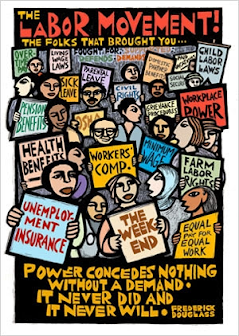
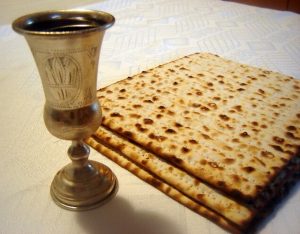 At the end of our gospel lesson this morning, Jesus said to the crowd, “It is my Father who gives you the true bread from heaven. For the bread of God is that which comes down from heaven and gives life to the world.” They said to him, “Sir, give us this bread always.” Jesus answered, “I am the bread of life. Whoever comes to me will never be hungry, and whoever believes in me will never be thirsty.”
At the end of our gospel lesson this morning, Jesus said to the crowd, “It is my Father who gives you the true bread from heaven. For the bread of God is that which comes down from heaven and gives life to the world.” They said to him, “Sir, give us this bread always.” Jesus answered, “I am the bread of life. Whoever comes to me will never be hungry, and whoever believes in me will never be thirsty.”

